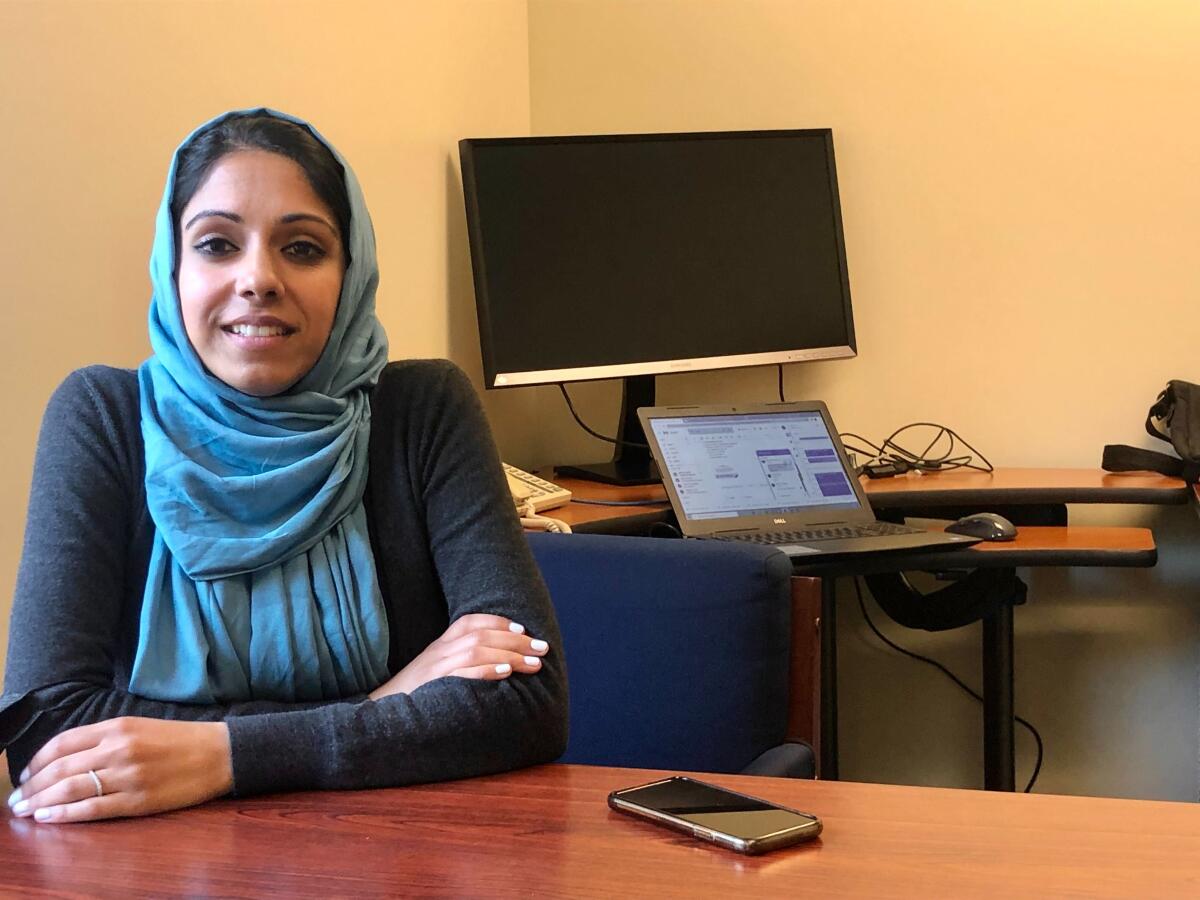Column: Here’s something important most people in California are totally ignoring. (No, not Arnold)

- Share via
SACRAMENTO — In a windowless room, in a boxy state office building a block from the Capitol, 14 individuals are busy mapping the political future of California.
Chosen from more than 30,000 applicants, their ranks include a seminary professor, a structural engineer and an investigator for the Los Angeles County Sheriff’s Department. The youngest, age 30, was in high school when California voters created her job on the Citizens Redistricting Commission.
The panel and its work are a legacy of Gov. Arnold Schwarzenegger, who promoted Proposition 11 as a way to shake up Sacramento and make elections in California more competitive by denying lawmakers the chance to draw their own political districts, as they had for decades.
Handing the process over to private citizens hasn’t made Democrats any less dominant in the state; the near-collapse of the Republican Party has seen to that. But it has certainly made the line-drawing more transparent.
There are no smoke-filled backrooms. The proceedings, held in a bare-bones workspace at the state Department of Rehabilitation, are not only smoke-free but livestreamed and posted on the internet for all the world to see.
It’s extremely important work that exceedingly few people care about.
The decisions made in the next several months in that borrowed meeting room will help shape not only the destiny of hundreds of political candidates over the next decade but also the lives of millions of Californians they represent.
Mercury Public Affairs loses nearly all of its California partners and staff.
A refresher: Every 10 years the state’s political boundaries are redrawn to account for population changes reflected in the U.S. census. The big news this time is that California, for the first time in history, lost one of its 53 congressional seats.
But as Fredy Ceja, the commission spokesman, put it, “It’s not as easy as just erasing one district and saying our job is done.”
In all, the commissioners will produce 176 maps, creating district boundaries for the now-52 members of Congress, 120 state lawmakers and four members of the Board of Equalization, which oversees tax collection. The deadline for completion is Dec. 27.
The commission consists of five Democrats, five Republicans and four members with no party affiliation. They were chosen in an exhaustive process — long and detailed questionnaires, multiple essays, face-to-face interviews — overseen by the nonpartisan state auditor.
The criteria for drawing political maps were laid out in the 2008 ballot measure establishing the commission. Among them, districts should: be of equal population; be geographically compact — sorry, no would-be Picasso drawings; comply with the Voting Rights Act to ensure that the power of minority groups is not diluted; and respect the boundaries of cities, neighborhoods and the like to the greatest extent possible.
The meetings, which typically last about eight hours, are catnip for political junkies and cartographers — “It looks like there’s a little section of Garden Grove near where the 5 intersects the 405” — but require an almost superhuman attention span for more typical viewers.
Working remotely, the commission got plenty of input during the months leading up this week’s start of line-drawing: more than 3,200 emails, letters and public comments via Zoom. (There’s still time to weigh in via the commission’s website.)
People in the San Fernando Valley don’t want their political lines slopping over into Ventura County. Residents of Long Beach, which is part of Los Angeles County, don’t want to be lumped in with neighboring Orange County. And is it possible to add Stanton to that district that includes Garden Grove?
There has also been, as CalMatters noted, some obvious if thinly veiled political lobbying. Among those sharing their thoughts — strictly as concerned citizens, of course — were a San Diego County candidate for Congress, the head of the Orange County Democratic Party and the chairman of the Leisure World Republican Club.
At least they made their pitches in public.
Neither House Speaker Nancy Pelosi of San Francisco nor Republican leader Kevin McCarthy of Bakersfield, who once might have been key players in the process, have not been heard from. But their thoughts, said commission spokesman Ceja, would be welcomed and weighed equally alongside those of everyone else.
Environmentalists have concerns about aging oil platforms off the California coast, which has reinvigorated debate about new offshore drilling.
For at least one commissioner the experience has been eye-opening, exhilarating and exhausting. (Members are paid a $378 per diem when commission-related work is performed, but they receive no salary. For many that effectively means working two jobs.)
Isra Ahmad, the panel’s youngest member, is a researcher for Santa Clara County who applied because she wished “to contribute to society on a larger scale.”
She’s learned a lot about political division and partisan polarization, though not among members of the commission, who have gotten on well despite their different leanings. Making everyone happy is impossible, she came to realize, so “trying to make things as fair as possible” is what she’s aiming for.

Working from home, Ahmad kept a copy of the oath she swore as commissioner — promising, among other things, “to bear true faith and allegiance to the Constitutions of the United States and the State of California” — hanging in her remote office as a reminder of her duty and inspiration during the long hours she’s put in.
Ahmad recently moved back in with her parents to get out from under the exorbitant rent she paid living on her own. There is no home office, so the oath now hangs on her bedroom wall.
More to Read
Get the latest from Mark Z. Barabak
Focusing on politics out West, from the Golden Gate to the U.S. Capitol.
You may occasionally receive promotional content from the Los Angeles Times.













